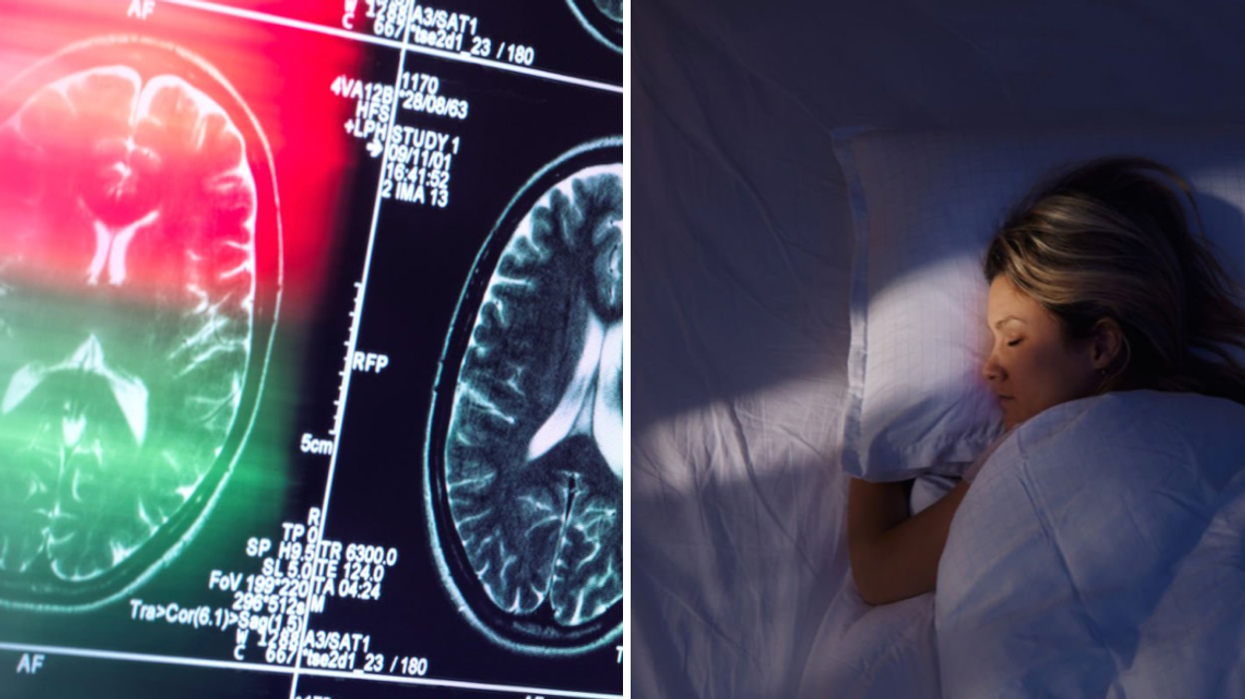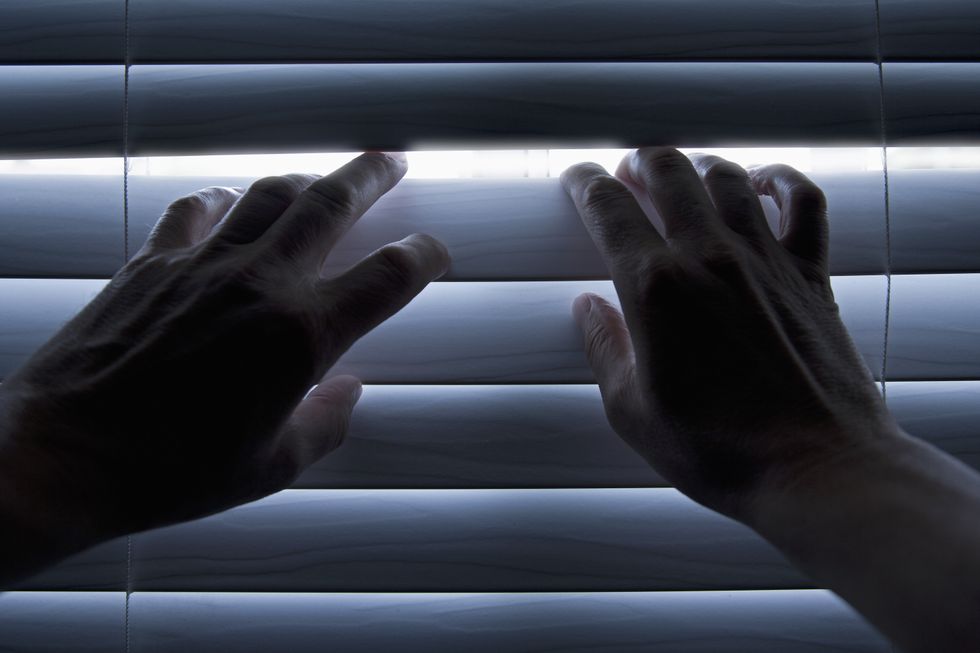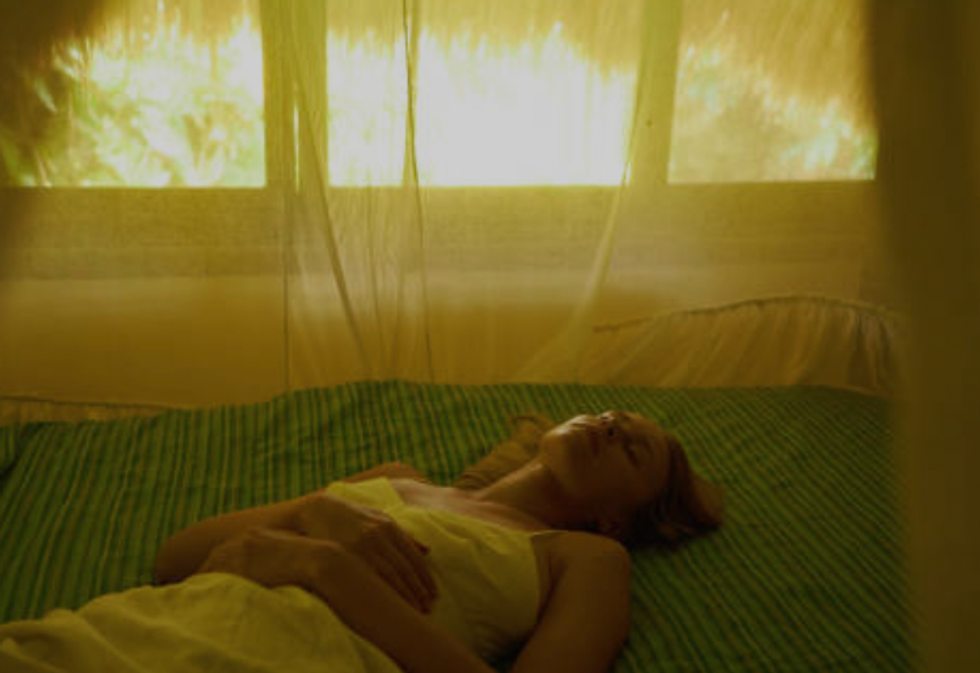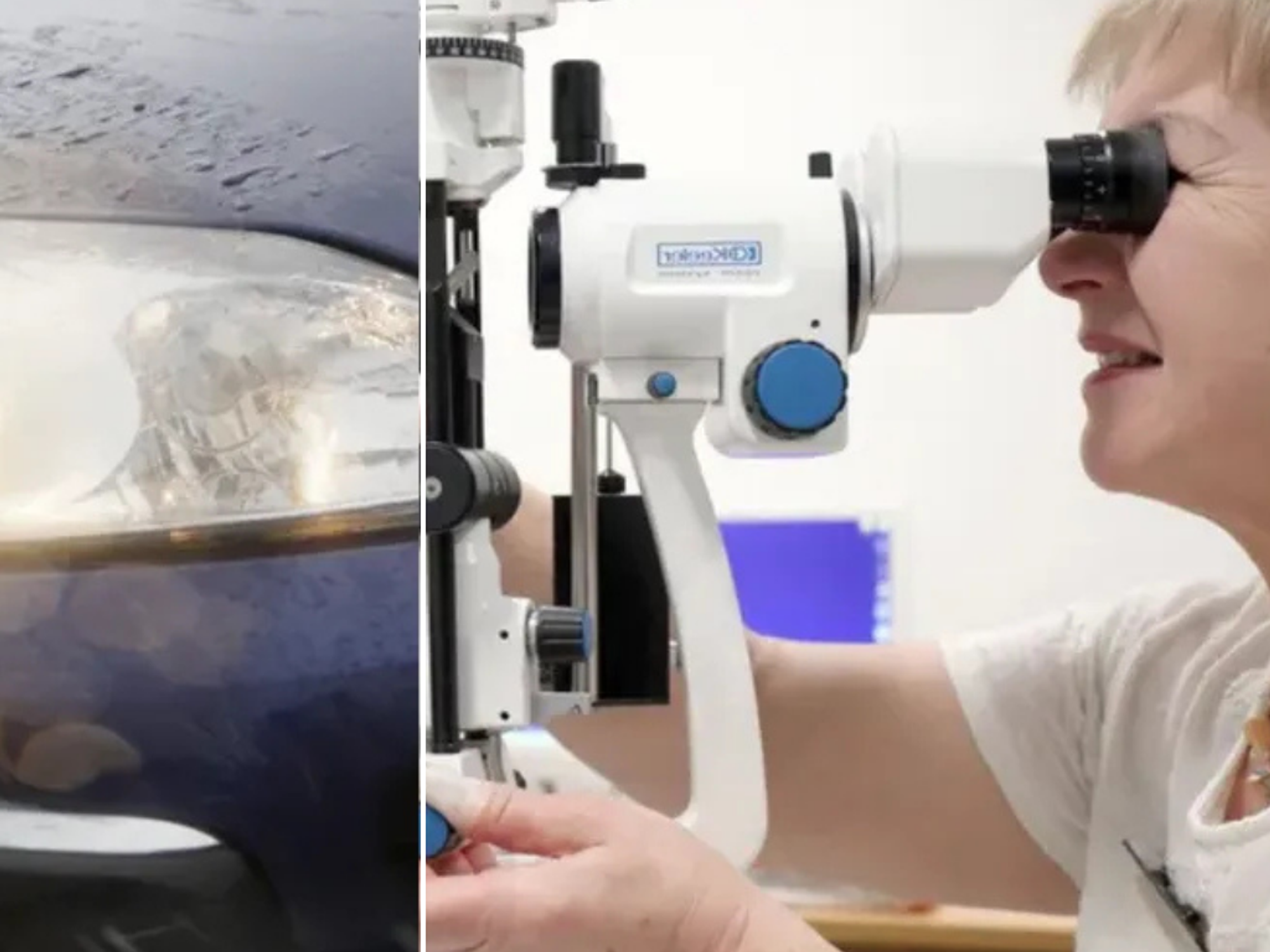How do you sleep at night? Bedtime habit affecting more than HALF of Britons found to raise risk of dementia

Exposure to light at night could increase risk of Alzheimer's disease
|Getty Images

The risk factor was found to be more strongly correlated with Alzheimer's disease than any other disease risk factor
Don't Miss
Most Read
Latest
Bad news for Britons who sleep with their blinds open: a bombshell new study suggests it could increase your risk of dementia.
Researchers showed that for people aged 65 and older, Alzheimer's disease prevalence was more strongly correlated with exposure to light at night, also known as light pollution, than some other disease factors, including alcohol abuse, chronic kidney disease, depression, and obesity.
For people aged under 65, however, the researchers found that higher nighttime light intensity was associated with a greater Alzheimer's prevalence than any other risk factor examined in the study.
This could suggest that younger people may be particularly sensitive to the effects of light exposure at night, the researchers said.

Younger people may be particularly sensitive to the effects of light exposure at night
| Getty ImagesIt is unclear why younger people could be more vulnerable, but it could be due to individual differences in light sensitivity, the researchers say.
They hope that their findings can help educate people about the potential risks of light at night. “Awareness of the association should empower people – particularly those with risk factors for AD – to make easy lifestyle changes,” said first author Doctor Robin Voigt-Zuwala, an associate professor at Rush University Medical Center.
“Easy to implement changes include using blackout curtains or sleeping with eye masks. This is useful especially for those living in areas with high light pollution.”
Furthermore, light exposure inside the home could be as important as light exposure from the outside. While the researchers did not examine the effects of inside light in the present study, they said that blue light has the greatest impact on sleep, and using blue light filters, swapping to warm light, and installing dimmers in the home could effectively reduce light exposure.
The researchers pointed out that their results are based on a subset of the US population, and that people may not be living in areas with high light pollution all their lives – both could impact individual outcomes. They also said that further research is needed to better understand how light at night influences AD.
The findings, published in Frontiers in Neuroscience are nonetheless concerning as millions of Britons are exposed to light at night, research suggests.
In a recent survey of 2,000 respondents, just over half of Britons (57 per cent) said that light sources in the bedroom negatively affected their sleep.
Light was revealed to be the biggest external cause of sleep disturbance among Britons.
The new study comes after research published last year suggested enhanced light sensitivity may play a key role in Alzheimer's.
LATEST HEALTH DEVELOPMENTS

Light was revealed to be the biggest external cause of sleep disturbance among Britons
|Getty Images
The research from UVA Health suggests that enhanced light sensitivity may contribute to “sundowning” – the worsening of symptoms late in the day – and spur sleep disruptions thought to contribute to the disease’s progression.
There is some evidence to suggest that a lack of sleep may increase a person's risk of dementia, but there is not enough to say for sure.
Does poor sleep increase dementia risk, or does dementia lead to poor sleep? Some researchers believe that both of these theories could be true, and the relationship could be circular, explains the Alzheimer's Society (AS).










